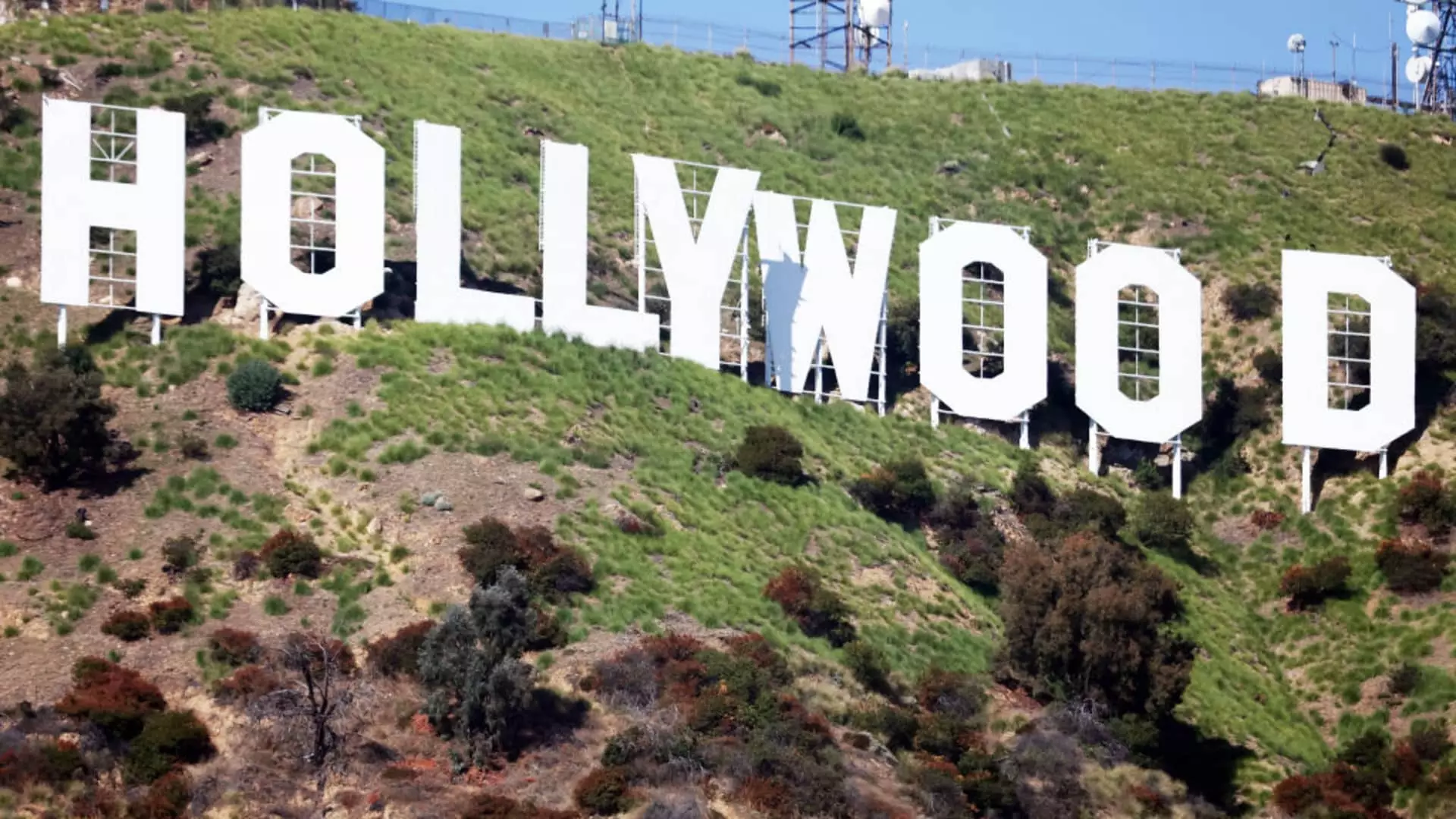The recent announcement by former President Donald Trump regarding his proposal for a staggering 100% tariff on foreign-produced films has sent shockwaves through Hollywood. Investors and executives alike are left reeling, with the stock prices of major industry players like Netflix and Disney taking notable dives. But amid the immediate panic, one must ask: what does this mean for the film industry beyond mere numbers on a balance sheet? This move isn’t just a financial hiccup; it represents a politically charged and potentially disastrous intervention in an industry that thrives on globalization and international collaboration.
The Insidious Nature of Protectionism
Trump’s assertion that tax incentives from foreign countries pose a “national security threat” is perplexing. Historically, the foreign tax benefits are designed to stimulate local economies, allowing studios to shoot in picturesque locations while also fostering job creation. To paint this as a threat is to overlook how intertwined the economies of modern nations have become. By vilifying international partnerships, Trump is championing a protectionist narrative that can backfire—alienating foreign markets critical for Hollywood profits. If the U.S. continues to erect tariffs, it could lead to a vicious cycle of retaliation from other countries, which would significantly dampen the already fragile international film market.
Understanding the Digital Evolution of Film Production
While Trump may envision this tariff as a measure to reclaim American jobs, the reality is far more nuanced. The film industry has increasingly shifted towards digital production methods. Most post-production is done remotely, making the concept of a tariff on films almost archaic. Unlike tangible goods such as electronics or textiles, films are digital content that can be transported over the internet without the costs typically associated with physical imports. Thus, imposing such tariffs risks becoming a bureaucratic nightmare, filled with confusion over what constitutes taxable goods under these new regulations.
International Relations at Stake
A significant concern that arises from these proposed tariffs is the impact on U.S. relations with other countries. Hollywood has long been an ambassador of American culture, and its global success rests on the rapport built with foreign markets. China’s already tight grip on Hollywood films serves as a cautionary tale; should other nations follow suit and restrict access to their markets, the consequences could be dire. The loss of international box office revenue would not only cripple studios financially but also stifle cultural exchange, leading to a less diverse cinematic landscape that offers audiences a narrower view of the world.
Potential Fallout from Tariff Policy
The ramifications of implementing a 100% tariff could be catastrophic. Besides a projected decline in international collaborations, there’s the question of whether completed projects would be exempt from these duties. Ambiguity surrounding the tariff protocols only heightens the uncertainty among studios planning global shoots. The studios’ worry isn’t just financial; it’s about the future of storytelling itself being compromised. As artistic expressions become less accessible, audiences may find themselves craving content that is no longer created out of fear of punitive measures imposed by their own government.
By standing firm on such an extremist position, Trump risks not only stifling the thriving American film industry but also heralding an era of self-imposed isolationism. Hollywood’s success wasn’t born from walls or tariffs; it thrived on creativity, collaboration, and openness to the world. It is imperative for future leadership to recognize the value of international relationships and the dire consequences that could arise from ideological rigidity.

